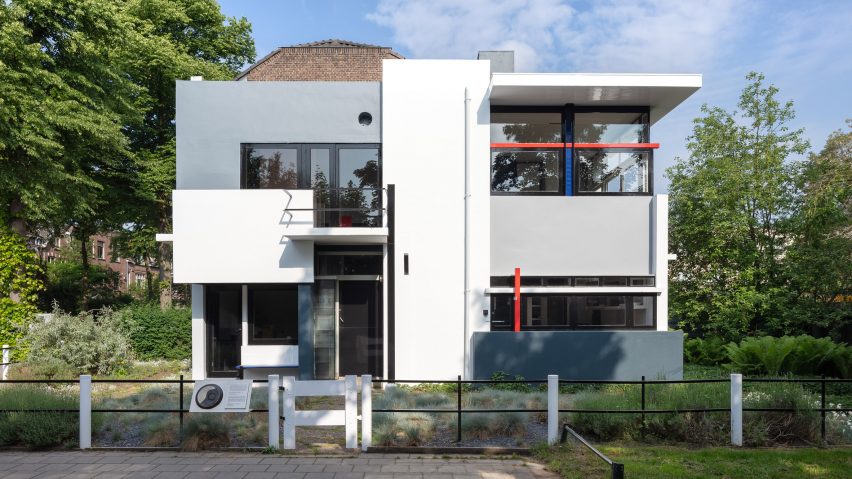
Stijn Poelstra photographs Mondrian-esque elements of the Rietveld Schröder House
Photographer Stijn Poelstra has captured the abstract proportions and primary colours of the Gerrit Rietveld-designed Schröder House in Utrecht.
Deemed a UNESCO World Heritage site, the house in the Netherlands was designed by the Dutch furniture designer and architect in 1924. Poelstra's photo series has been released by the Centraal Museum to publicise a new website for the house.
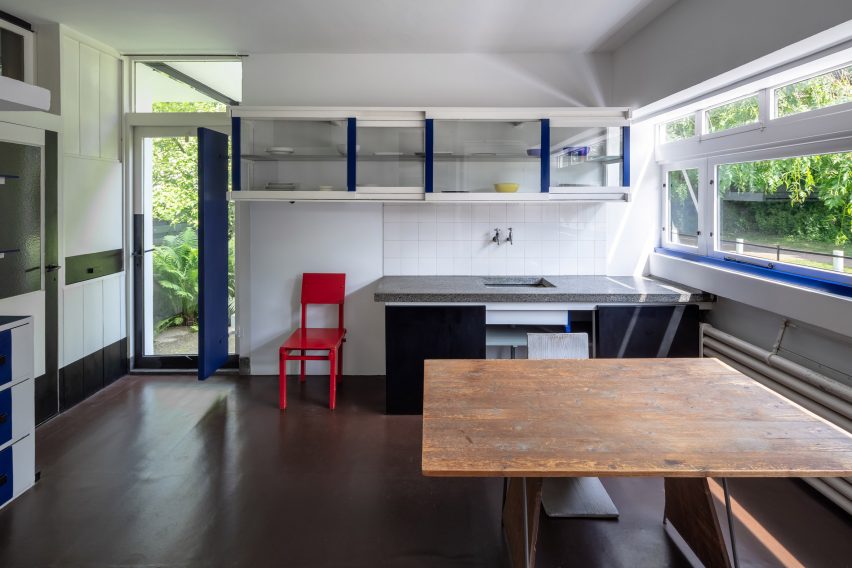
Rietveld was part of the De Stijl art movement pioneered by abstract artists Piet Mondrian and Theo van Doesburg.
Their work was characterised by a rigid geometry of horizontal and vertical lines using a limited palette of black, white, yellow, red and blue.
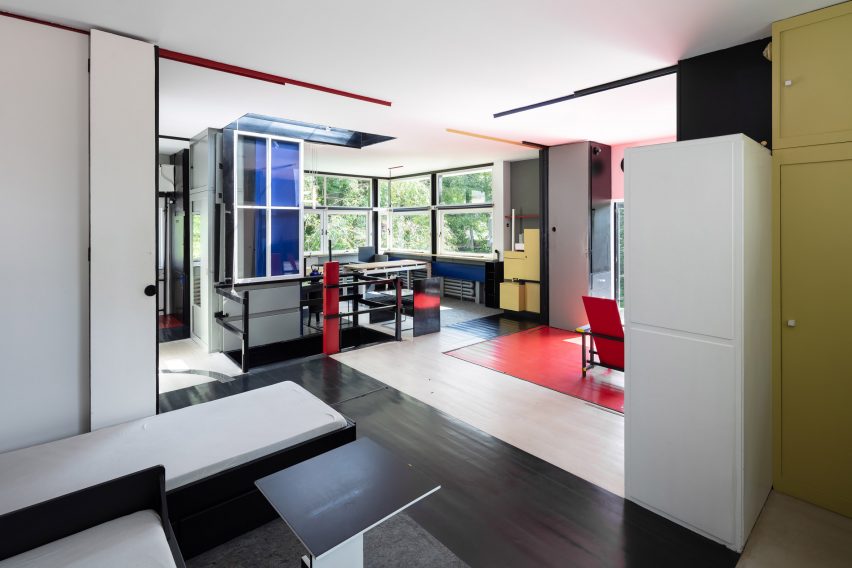
Truus Schröder, a widowed mother of three, employed the services of Rietveld to design an unusual house that could accommodate her unconventional ideas about family living.
Schröder wanted a house that could facilitate a more open and un-hierarchical way for a newly independent woman to live as she saw fit. She chose Rietveld, who up until then had designed furniture but no buildings, for his allegiance with the groundbreaking art movement.
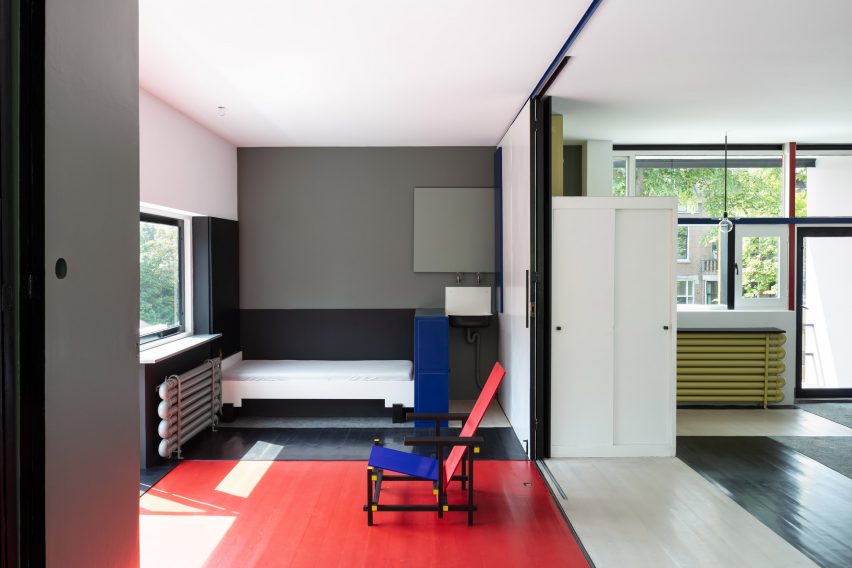
Rietveld devised a series of architectural systems to accommodate Schröder's wishes, such as sliding partitions that allowed the open plan space of the first floor to be divided into three separate rooms.
The family could use the first floor as one communal living room equipped with a stove in the day, then split it into private bedrooms at night.
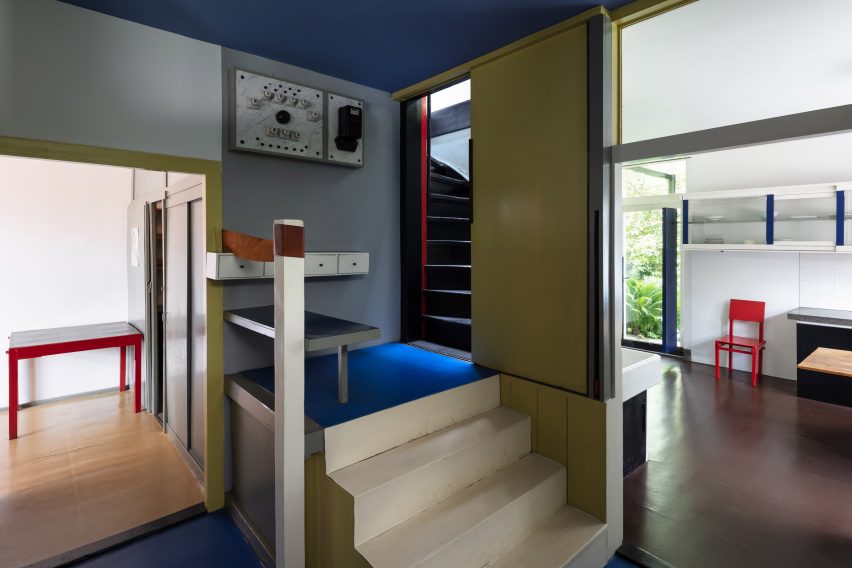
Another sliding door conceals a staircase, which could be shut off to allow for private phone calls on the hall telephone.
A tube connecting the first floor to the front door allowed Schröder to communicate with visitors without having to come downstairs.
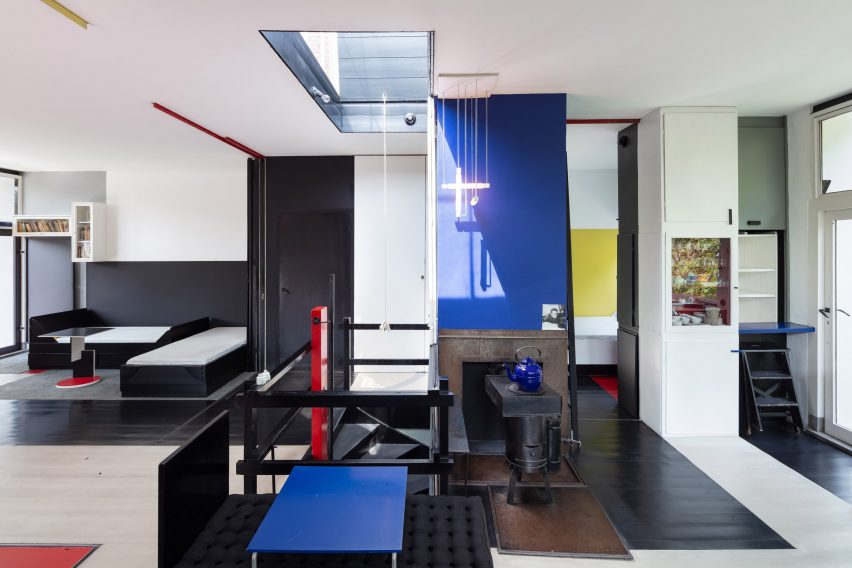
On the top floor a glazed corner is made from a large and a small window that can swing out and open the house to the landscape. Wooden panels double as window shutters.
The Rietveld Schröder House was furnished with pieces designed by Rietveld, including angular pendant lamps and his Red and Blue Chair, which is made from 15 slats and two panels of beechwood.
Schröder lived in the house for the rest of her life. She allowed Rietveld to keep a design studio on the ground floor, and when his wife died in 1957 he moved in permanently.
Upon Schröder's death in 1985 the house passed into the care of the Centraal Museum, which keeps it open for visitors.
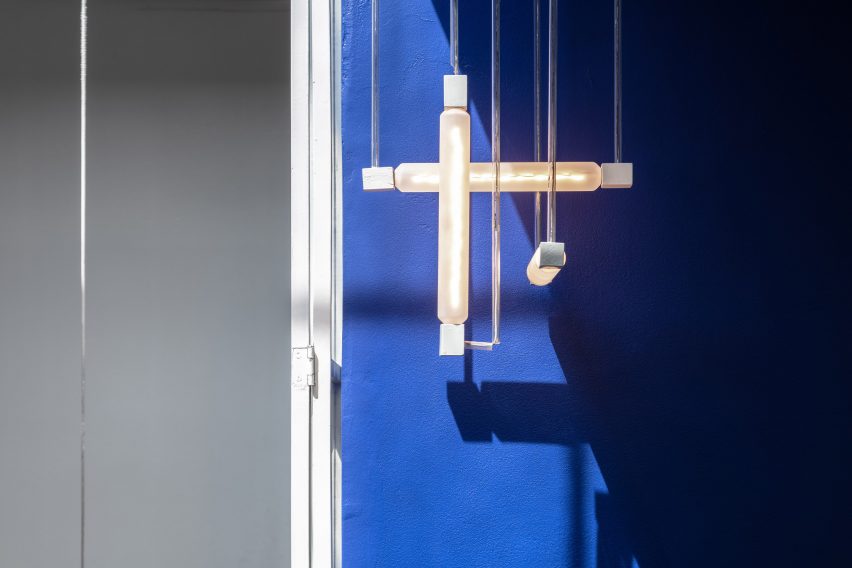
Rietveld's work is still providing inspiration for designers and artists alike. Belgian photographer Xavier Delory has reimagined the Rietveld Schröder House painted in De Stijl patterns, and Dutch designer Bastiaan Buijs reworked the iconic Red and Blue chair into a kinky piece of sex furniture.